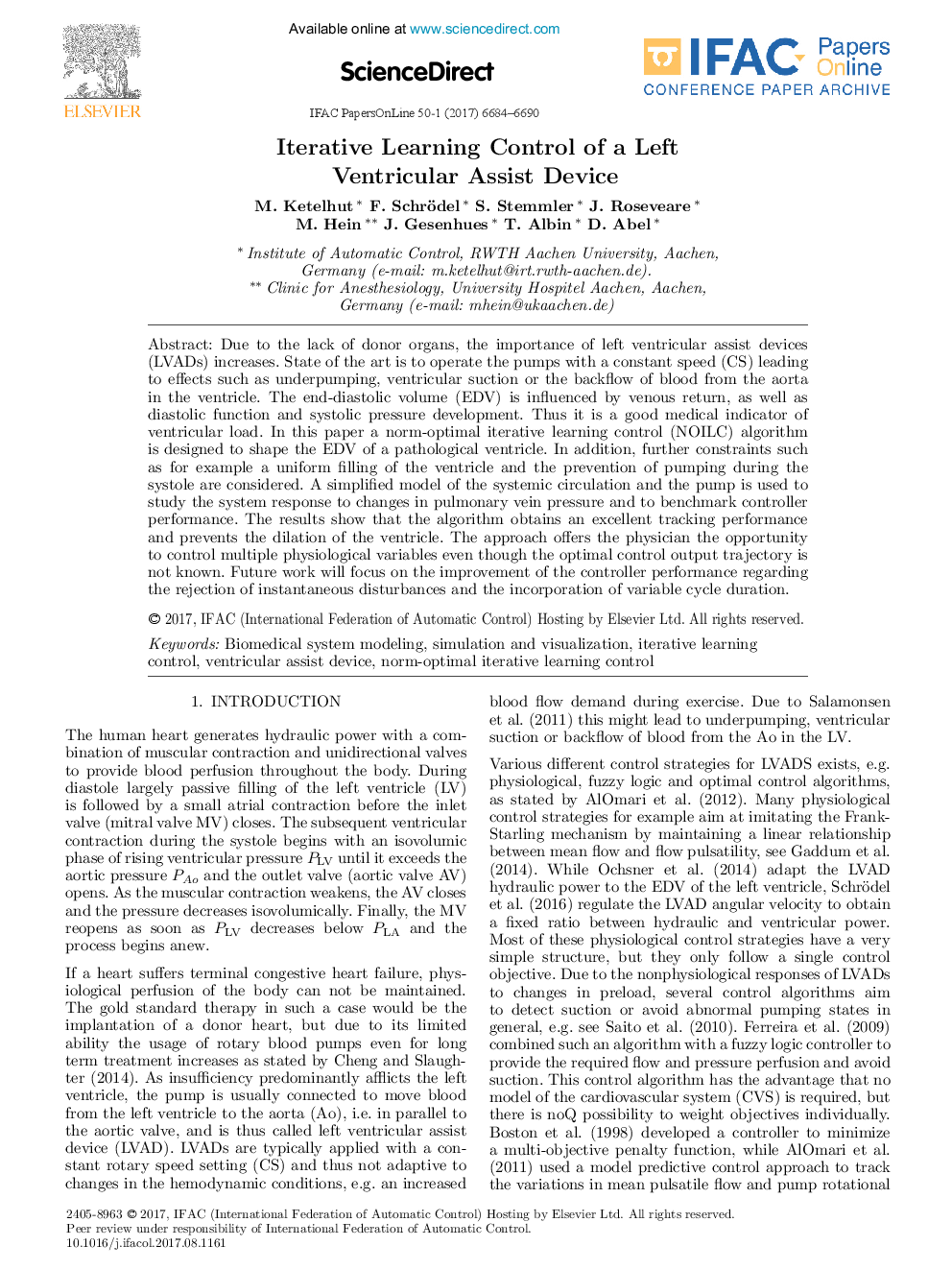ترجمه فارسی عنوان مقاله
کنترل تندرستی دستگاه یاری کننده بطن چپ
عنوان انگلیسی
Iterative Learning Control of a Left Ventricular Assist Device
| کد مقاله | سال انتشار | تعداد صفحات مقاله انگلیسی |
|---|---|---|
| 105762 | 2017 | 7 صفحه PDF |
منبع

Publisher : Elsevier - Science Direct (الزویر - ساینس دایرکت)
Journal : IFAC-PapersOnLine, Volume 50, Issue 1, July 2017, Pages 6684-6690
ترجمه کلمات کلیدی
مدلسازی سیستم بیومدیکال، شبیه سازی، تجسم، کنترل یادگیری تکراری، دستگاه کمک بطنی، کنترل یادگیری تکراری مطلوب،
کلمات کلیدی انگلیسی
Biomedical system modeling; simulation; visualization; iterative learning control; ventricular assist device; norm-optimal iterative learning control;

